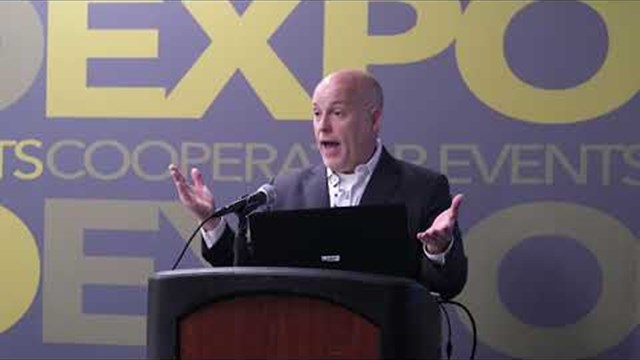Once upon a time, you usually greeted your neighbor in the hallway of your building as you’re coming or going. But lately you haven’t seen or heard a peep from her in almost two months. You wonder if she is okay.
So you ask the super one morning in the lobby about your neighbor’s whereabouts. He responds that she’s perfectly fine – she just went to a writers’ retreat in Portland for a year. The reason why the neighbor didn’t sublet her place, the super explains, is because she has a valuable collection of pre-Columbian art and was afraid of possible theft or damage.
And just like that, you have a ghost owner for a neighbor.
The Fundamentals of Vacancy
Co-ops and condo units are potentially income-producing assets. While ostensibly intended as principal residences for their owners, both can generally be leased out. In a co-op, where a resident of the unit is a shareholder in the corporation that owns the property, the act of leasing out the unit is referred to as a sublet. In a condominium, where the unit is owned directly, the leasing out of the unit is referred to simply as a lease. In both cases – particularly in a co-op – the board will have some level of control over the leasing of the unit. Given that co-op and condo units carry monthly costs such as common area charges, maintenance and probably mortgage payments, owners who plan long absences for work or travel often place a rent-paying tenant in their unit during that time to cover those costs. But some owners, like the aforementioned art-collecting neighbor, can afford or prefer not to have anyone at their place while on vacation. Those types of residents become so-called ‘ghost’ owners.
The Practical Effects of ‘Ghost’ Ownership
Perhaps the most obvious possible consequence of unoccupied units is problems with accessing those units when necessary. Unlike a private home, an apartment unit, surrounded on all sides and up and down by other units, may be involved in any number of situations that require building staff or outside contractors to access it.
According to Cindy Petrenko, President of Complete Property Management Services in Vernon, New Jersey: “The association, through the board, manager or any managing agent, has the perpetual and non-exclusive right to access each and every unit, if necessary and required. It’s in the governing documents.” She elaborates that the documents lay out rules and rights of the association to remedy violations of the provisions of the master deed, bylaws or any rules or regulations of the association. Furthermore, the association also has the right to perform any operations required for the maintenance, repair, or replacement of any common elements. In the case of an emergency, the association has the right to entry of any unit whether the owner is present or not.
“Access to a unit in case of a problem,” says Stuart Halper, Vice President at the New York-area based Impact Real Estate Management, “is the most important consideration when an owner is away for a long period of time. The most important issue is whether the heat is on or not. In many buildings today, each unit has its own heating system. When owners leave for long periods, they turn off the heat. In the winter – especially in a climate like ours, where you can have long periods of intense cold and temperatures plummet – pipes can freeze up over an extended cold snap. This is especially true in townhouse and garden apartment type developments. Water pipes can burst. This can also happen in an apartment building.”
If a break happens in an empty unit, or if water or other damage from an adjacent unit affects an empty one, it’s imperative that building staff or outside personnel be able to get into the unoccupied unit to address the problem and keep it from turning into something much worse. While the idea of a super or plumber entering one’s home unsupervised for an unlimited amount of time might not sit well with residents, it may be fair to say that being held liable for the damage done to neighboring apartments by one’s leak, or coming home to mold growing all over the walls, is far worse.
Emergency Response
The key to solving this problem is...keys! Halper suggests that all owners who leave for extended periods of time leave a set of keys with the management, super or a neighbor, so that their unit can be easily accessible in the event of an emergency.
And if the idea of leaving keys to your home with anyone other than a close relative gives you anxiety, consider the alternative: if no means of easy access has been arranged before a resident has left, and something serious comes up, “we call the fire department and they break down the door,” says Halper. “The management and the board have the authority to step in under governing documents if they can’t get hold of the owner for necessary or emergency repairs.”
Jim Toscano, President of Property Management of Andover in Lawrence, Massachusetts, takes a view similar to Halper’s about the most common cause of problems resulting from long-term absentee owners. Toscano manages numerous properties where owners spend the winter in warmer climes. “Problems arise when they haven’t properly winterized their unit,” he says. “There can be the potential for damage in their unit or in neighboring units. It doesn’t happen as often as it did, say, 10 years ago, because we have educated owners. So now it’s much less frequent – but it can be frustrating at times. When it does happen and we have to get access, we call a locksmith to open the door.”
Petrenko says if she can’t gain entry, “I call the sheriff and a locksmith.” That way there are no accusations after the fact of missing items, as a representative of the law is present.
Community Policy
How should a co-op or condo board address the potential problems posed by ghost-owners? “The best approach is to require unit owners to leave keys with management,” says Halper. If this requirement is not in the community’s bylaws or house rules, it can be adopted through the amendment protocols of the co-op or condo.
In lieu of or in addition to keys, Toscano says it’s also helpful to require residents to leave up-to-date contact information with the management. “If we don’t have the information we need, which is required, we can penalize the owner through a fine or other monetary penalty,” he says. “The fine can be daily and continuous. At, say, $25 per day, that can pile up fast. Unit owners usually respond quickly after they see the bill.”
Liability
In the event of a broken pipe, management must act, and act fast. “We have an obligation to preserve and stabilize the unit,” says Toscano. “We won’t necessarily fix the broken pipe, but we will turn off the water immediately, and dry out the unit to prevent mold. We don’t make repairs without the owner’s permission. We preserve the unit so the damage doesn’t get worse. That’s a legal obligation.”
“There’s enough liability to go around,” says Halper. “Management has the authority to step in under governing documents if they can’t get hold of the owner for necessary or emergency repairs.” The extent of liability to the owner or the association or corporation depends on the specifics of the situation. Was the pipe break within the purview of the owner or the co-op or condo according to the governing documents? Toscano explains that repair work is often dictated by insurance. Is the damage covered under the building or homeowner’s policy?
According to Alex Seaman, Senior Vice President with HUB International in Woodbury, New York: “Unit owners are legally and financially responsible for these types of losses. If they have a homeowner’s policy, they can make a claim. All damage to any unit as a result of their negligence is the homeowner’s responsibility.”
Other Potential Problems...
The damage from burst pipes is not the only potential problem resulting from disappearing neighbors. Such issues could include mail and packages piling up, voting in the event of an emergency meeting, and illegal sublets.
The most obvious of these problems is mail and package delivery. “If the mailbox gets full,” says Halper, “and let’s remember that most apartment mailboxes are quite small – the post office will simply hold the mail at the post office, even without notification from the receiver.” In a building with a concierge or doorman, larger packages will be accepted and kept in a storage area, Halper explains, until the unit owner returns. In a building without a doorman, the problem can become worse, as theft of packages from unattended lobbies is already a concern and becomes even more so when parcels pile up and gather dust.
When it comes to achieving a quorum for building meetings, there can be no vote if there aren’t enough shareholders or unit holders in attendance. There is no way around it. “But most boards,” says Halper, “are fully vested in most decision-making situations and issues. They don’t need a broad vote of ownership to make a policy decision. Governing documents should authorize email or electronic meetings and decision-making.
On the issue of illegal sublets, the answer is quite simple: if governing documents in either a co-op or condominium prohibit leasing of the unit without permission, both the owner and the illegal sub-lessee are-subject to penalties, fines, and even eviction. Don’t try to rent out your unit at a profit and then try to convince anyone that your “nephew” is staying in the apartment for a couple of weeks. If you want to lease out your unit while on an extended stay away, go about it properly and according to the community’s rules.
In the final analysis, deciding to leave your apartment unit unattended is your decision. If you do leave it empty, consider your neighbors. Leave keys, contact information and instructions, and have a good trip.
A J Sidransky is a staff writer/reporter with The New Jersey Cooperator, and a published novelist.







Leave a Comment